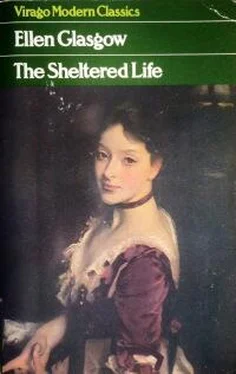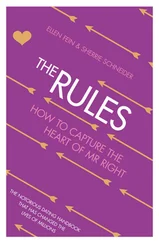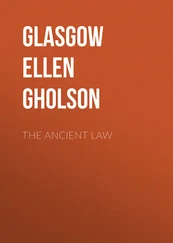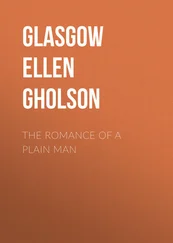Ellen Glasgow - The Sheltered Life
Здесь есть возможность читать онлайн «Ellen Glasgow - The Sheltered Life» весь текст электронной книги совершенно бесплатно (целиком полную версию без сокращений). В некоторых случаях можно слушать аудио, скачать через торрент в формате fb2 и присутствует краткое содержание. Жанр: Классическая проза, на английском языке. Описание произведения, (предисловие) а так же отзывы посетителей доступны на портале библиотеки ЛибКат.
- Название:The Sheltered Life
- Автор:
- Жанр:
- Год:неизвестен
- ISBN:нет данных
- Рейтинг книги:5 / 5. Голосов: 1
-
Избранное:Добавить в избранное
- Отзывы:
-
Ваша оценка:
- 100
- 1
- 2
- 3
- 4
- 5
The Sheltered Life: краткое содержание, описание и аннотация
Предлагаем к чтению аннотацию, описание, краткое содержание или предисловие (зависит от того, что написал сам автор книги «The Sheltered Life»). Если вы не нашли необходимую информацию о книге — напишите в комментариях, мы постараемся отыскать её.
The Sheltered Life — читать онлайн бесплатно полную книгу (весь текст) целиком
Ниже представлен текст книги, разбитый по страницам. Система сохранения места последней прочитанной страницы, позволяет с удобством читать онлайн бесплатно книгу «The Sheltered Life», без необходимости каждый раз заново искать на чём Вы остановились. Поставьте закладку, и сможете в любой момент перейти на страницу, на которой закончили чтение.
Интервал:
Закладка:
"She was very much in love, wasn't she, Grandfather?" Jenny Blair asked after a long silence in which her dewy mouth drooped and grew sad.
"She is very much in love, Jenny Blair." Why, he wondered, did the child persist in using the wrong tense? For no one, not even Jenny Blair, with her childish perversity and her moist geranium mouth, seemed to him so indestructible in charm as Eva Birdsong. Youthful, too, not in appearance alone, though she was, in his eyes, as clear and brilliant as she had ever been, but in mind, in heart, in some effervescent fountain of life. Yet Jenny Blair, he suspected, and the suspicion pricked like a thorn, was already assuming the faintly arrogant manner, the air of secret wisdom, with which inexperience surveys the mistakes of experience.
Glancing down on the wreath of cornflowers and the sheer crown of Jenny Blair's hat, he told himself, in exasperation, that he really knew nothing about her. Nothing. Only that she was young and pretty (people had not thought highly of mere prettiness a generation ago) and sufficiently attractive, no doubt, to hold her own in a Queenborough that had forgotten the famous beauties of the nineteenth century. But these qualities or defects were on the surface, and he knew as little of her inner life as a man could know of a granddaughter who had grown up in his house. True, he loved her devotedly, more devotedly than he loved Isabella or Etta, though not so deeply as he had loved his only son, Jenny Blair's father. Yet his preference for her may have sprung only from the sentimental appeal which made him, and all other civilized men, tender to the small, the young, the helpless, the immature. Was this fondness akin to his aging solicitude for babies too young to walk and birds just out of the nest?
No, there was, he felt, a stronger bond than mere sentimentality. For he realized that the difference which separated him from his daughters was an actual diversity. Ages were scarcely involved in it, nor were alterations in manners. In many ways, indeed, he felt himself more advanced than a modern. But both Etta and Isabella appeared to him to be little deeper than air-plants by nature; they lived so entirely in feeling that they were devoid of conviction, and their inconsequential beliefs were as variable as moods. "They always want; they never think," he reflected.
Though Jenny Blair wanted, too, she wanted, he mused sadly, not with her emotions alone, but with what passed for her mind also. She craved more than satisfied desire, for she craved the freedom to seek. If he searched far enough into his past, he might find some blighted intimation of his granddaughter's perversity. Something within himself, some impulse of wildness, had always longed, he realized, to be free, to be selfish, to live its own life untrammelled by consideration for others. But even this much, he told himself, was conjecture. He knew as little of Jenny Blair's hidden self as he knew of the intimate nature of the universe.
His gaze roved from the girl at his side to the long straight street, where drab asphalt was replacing the fine old red of the brick pavement. Neutral, he thought indignantly. That was the way modern life compared to the variegated hues of the past, as neutral as asphalt. Here and there a dignified Georgian house retreated, like an aristocrat of architecture, from inferior associates. It was pathetic, he told himself, to see Washington Street sink down to the level of boarding-houses and shops, as the relict of a Confederate general might fall into honourable but neglected adversity. A black-and-white cat strolled across the pavement in front of William, looked round in angry astonishment, and sprang, spitting, to the top of a fence—the sort of cat that mouses along the steep decline of gentility. A woman in a motor coat and one of the small motor hats all old men dislike came out of a gate and bowed to him as she crossed the pavement to her touring car. A poor exchange, he thought, for the graceful victoria in which every beauty of the eighteen nineties had discreetly flaunted her charms.
Through the buzz and purr of approaching motor cars, he heard the lifted notes of Jenny Blair's voice, as clear as a flute and as deficient in suavity. Even the sounds of the present, and certainly the smells, were less romantic than they used to be.
"What did you say, my dear? I wonder how we live in the midst of this noise and dust. It's positively stifling. Now that summer is coming, we'll probably have that stale odour back again."
"You can smell it sometimes in winter, Grandfather, if the windows are open. Aunt Etta says it makes her hay fever worse."
"No doubt, no doubt, poor child. But what were you saying?"
The buzz and purr had subsided, but Jenny Blair's voice was still high and fluting. Talking against noise. So much of modern life was merely talking against noise. "I was only wondering about Mrs. Birdsong. If she was so beautiful, with that lovely voice, how could she be content to live all her life in a small place like Queenborough?"
"She fell in love, my dear. You will understand when you're older."
"But why did she fall in love? I don't see why she fell in love, do you?"
"I'm not a fair judge. No man I've ever met seemed to me worth losing one's heart to, much less one's head also."
The girl's high tones dropped to a quiver of intensity, "I don't like fair men. I could never fall in love with any man who hasn't dark eyes."
"There are plenty of dark men in Queenborough. There are all sorts of heads here, too, including red ones. Have you ever looked at young Welch, by the way? He's a fine boy and will make a good doctor."
"I don't care. I wouldn't look at him. I have always," the girl added crisply, "despised the name John."
"Well, I'm afraid you're a fastidious young woman. But red heads are everywhere, and so are Johns. I've met them in the desert calling themselves Mohammed."
"I don't care," the girl repeated, pressing his hand. "I don't care about men. All I want to do is to live my own life."
She had spoken coyly, but she had spoken. While he listened to this familiar declaration of principles, General Archbald reminded himself that it was futile to expect originality in the ideas of youth. From his earliest years in the obscure thirties, he had heard the immature utter this exact wish in these exact words. Only one other motive appeared as inevitable as the desire of youth to live its own life, and this was the determined effort of age to nip that desire in the bud. Yet, since he was unpolemical by nature, he remarked gently, "It is not easy to lead one's own life, my child. Many have tried, and very few have succeeded. Circumstances have a habit of making impediments."
"If they're only circumstances, I don't mind so much. But I do wish people wouldn't try to interfere with me."
"What people? Surely you must know that your mother and I wish only the best for you."
"I know that, Grandfather. I love you and Mamma better than anything in the world, but I must live my own life."
"Don't forget that your mother has given up her life to you. She has had only you since your father died."
"Yes, I know she has been splendid. Only now she has forgotten how she felt when she was my age, before she had Father and me to fill her mind."
"If she has forgotten, I haven't, my dear. She wished, like every other inexperienced creature, male or female, man, animal, bird, or fish, to live her own life in her own way. Only circumstances, or nature, if you please, took a hand in the situation, and settled matters by making you and your father her life."
Jenny Blair listened respectfully until he had finished. Then she repeated all that she had said before he began, and continued with energy, "There is no use in Mamma's making me come out next winter in Queenborough. I want to go to New York and study to be an actress. That is the only thing in the world I want to do. You know yourself that you wouldn't like to give up your career and be a wallflower at dances. Especially if you didn't like boys and were not a girl who made the right sort of appeal."
Читать дальшеИнтервал:
Закладка:
Похожие книги на «The Sheltered Life»
Представляем Вашему вниманию похожие книги на «The Sheltered Life» списком для выбора. Мы отобрали схожую по названию и смыслу литературу в надежде предоставить читателям больше вариантов отыскать новые, интересные, ещё непрочитанные произведения.
Обсуждение, отзывы о книге «The Sheltered Life» и просто собственные мнения читателей. Оставьте ваши комментарии, напишите, что Вы думаете о произведении, его смысле или главных героях. Укажите что конкретно понравилось, а что нет, и почему Вы так считаете.












